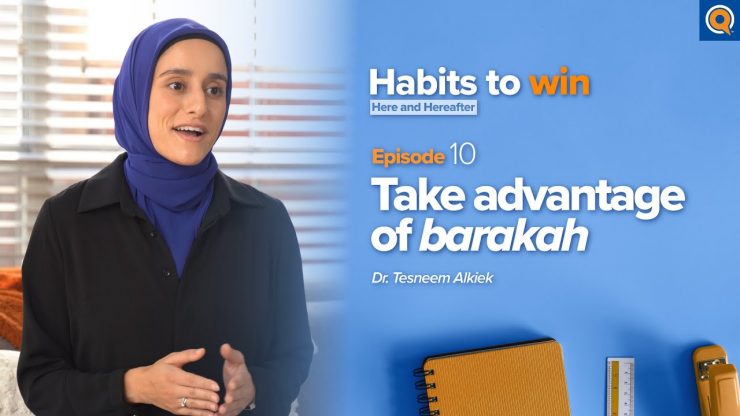Today, being busy has become trendy. We’re constantly chasing after more minutes in a day to get more done to become more successful. But the Islamic concept of barakah flips this exhausting mindset on its head. These few simple ways to invite barakah into our lives can transform our relationship with Allah and our understanding of success.
Being busy is admirable
In the past decade, being busy has been seen an indicator of a person being important and successful because they are working around the clock to get things done and climb up the ladder. In fact, being busy is so admirable nowadays that when it comes at the expense of quality time with family, or important life events, it is considered to be a noble act, because you have sacrificed friends and family in pursuit of an important cause.
Overcommitting yourself beyond your capacities can be suffocating. Chasing after more minutes in the day to get more work done and make more connections in a shorter time, only leads to exhaustion.
The Islamic concept of barakah
This is why the mentality that we should have as muslims is incredibly freeing. That mentality isn’t to sit back and relax, and not attempt to be leaders in every field. It’s about taking advantage of barakah.
What is barakah?
Barakah roughly translates as blessings, but it’s so much more than that. Barakah is when Allah (swt) takes a particular positive aspect and multiplies it manyfold.
As an example, barakah in your money can be when you find yourself constantly spending on necessities, yet never sensing any loss. Somehow the best of deals always come your way and doors open that you could never have predicted.
Barakah in time works in a similar way. If you have Allah’s blessings in your time, you suddenly find that you can accomplish so many things in such a short amount of time. There are less hoops to jump through, and more opportunities that readily arise.
When you experience barakah, you know there’s nothing in the world that can give you the same return on your investment. You won’t be able to help but chase after ways that bring barakah into your life.
How to invite barakah into your life
God and His prophet ﷺ gave us the counsel we need to attain extraordinary blessing. Here are a few simple ways that you can invite barakah into your life.
- Take advantage of the early hours
The Prophet ﷺ made specific dua for his ummah on the advantage of early hours by asking Allah to put barakah in the early mornings.
The messenger of Allah ﷺ said: “Oh Allah! Bless my people in the early part of the day.” [Riyad as-Salihin 957]
Try to make it a habit to start your day right after fajr salah.
2. Seek forgiveness when you are tight on time or under pressure
When the Prophet Noah (as) was calling his people to believe in God, he told them to make istighfar so that they can witness the abundance of God’s forgiveness.
I [Nuh] said, “Seek your Lord’s forgiveness, for truly He is most forgiving. He will shower you with abundant rain, and supply you with wealth and children, and give you gardens as well as rivers.” [Quran 71: 10-12]
You can have it all and more in this world.
3. Give in charity
Many verses in the Qur’an and stories from the life of the Prophet ﷺ describe how Allah multiplies the wealth of those who give in His cause, in this world and in the next.
One hadith of the Prophet ﷺ even advises you to give charity on behalf of the sick, as a means of healing. Giving sadaqah (or charity) serves provides blessings in one’s health and wealth.
Download the Habits to Win Here and Hereafter Workbook as you follow along with this series!

